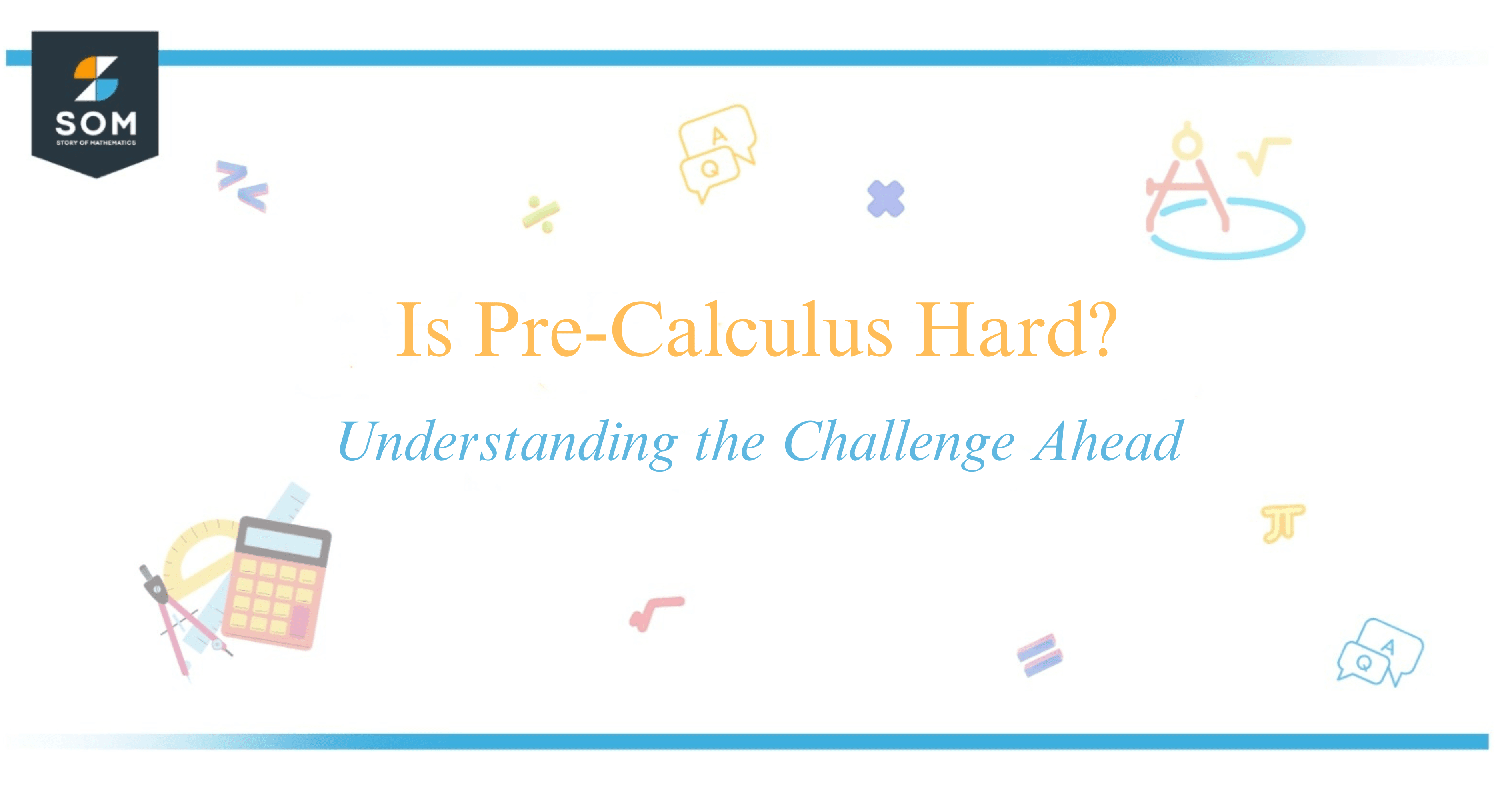JUMP TO TOPIC

Pre-calculus often marks a significant transition in a student’s math journey, laying the groundwork for more complex subjects like calculus. This course typically encompasses a review of algebra and geometry as well as an introduction to trigonometry and mathematical analysis, serving as a stepping stone between high school math courses and college-level calculus.
As I reflect on this crucial subject, I recognize that while pre-calculus can be challenging due to its comprehensive nature, its difficulty largely depends on one’s grasp of previous math concepts. Will you find pre-calculus demanding or manageable? Join me as we explore what makes this course both intriguing and formidable.
Understanding Precalculus Fundamentals
The main differences between Algebra I and Algebra II are their complexity and the depth of topics covered. Algebra I lays the foundation with linear equations and inequalities, while Algebra II delves into more complex concepts like functions and polynomials.

Pre-calculus acts as a vital bridge that connects the mathematical skills learned in Algebra I and II, Geometry, and Trigonometry to the more advanced study of Calculus. My foundation in Algebra is built upon understanding variables, equations, and inequalities. For example, solving linear inequalities such as $ax + b > c$ and quadratic equations like $ax^2 + bx + c = 0$ is essential.
In Geometry, I’ve learned about shapes, their properties, and proof constructions, which are useful when approaching Pre-calculus problems involving geometric principles.
Trigonometry, meanwhile, introduces me to the understanding of trigonometric functions like $sin(x)$, $cos(x)$, and $tan(x)$, which are fundamental in describing the periodic behavior found in various natural phenomena.
Pre-calculus itself emphasizes the study of functions. It is here that I begin to explore different types of functions, including:
- Polynomial Functions: Expressions like $p(x) = a_nx^n + a_{n-1}x^{n-1} + … + a_2x^2 + a_1x + a_0$.
- Logarithmic Functions: They have the form $f(x) = log_b(x)$, where $b$ is the base.
- Trigonometric Functions: These are extensions of trigonometry involving functions such as $sin(x)$ and $cos(x)$.
Learning about limits and the concept of a limit prepares me to grasp the behavior of functions as their inputs approach certain values, a building block for Calculus. Mastery in these areas is important to tackle the dynamic concepts that I will face in Calculus.
Challenges in Precalculus
The main differences between advanced math concepts and fundamental math principles are their level of complexity and problem-solving demands. Advanced math, like precalculus, often requires deep logic and the ability to memorize a vast number of formulas that build on each other, posing a significant challenge.
In precalculus, students encounter a range of difficult topics that demand a strong foundation in algebra and trigonometry. Here’s a breakdown of the challenges:
- Complex Concepts: Understanding the significance of functions, limits, and other analytical tools.
- Problem-Solving Skills: Applying logic to solve higher-level problems that may not have straightforward solutions.
- Memory: Students must memorize and apply numerous formulas, such as the quadratic formula: (a$x^2$ + bx + c = 0).
| Key Areas of Difficulty | Reason for Challenge |
|---|---|
| Advanced topics | Builds on previous mathematical knowledge |
| Problem-solving | Requires logical reasoning and critical thinking |
| Memorization | Extensive formulas and concepts to remember |
Students must access a variety of resources to grasp these topics adequately and build confidence in their abilities, which is crucial. This involves practice problems, studying theory, and sometimes seeking help from teachers or tutors. The difficulty level varies among students, with some finding precalculus particularly difficult due to its advanced nature.
To succeed, I recognize that investing ample time to practice and understand is necessary. Persistent efforts can turn challenges into achievements in this rigorous course.
Resources and Strategies for Success
The main differences between 12th-grade math and advanced math courses like Pre-Calculus are the depth of conceptual understanding and the complexity of problem-solving required. In Pre-Calculus, I’ll tackle topics like college algebra and math analysis, essential for success in Calculus I.
For students looking to succeed in Pre-Calculus, a variety of resources can prove invaluable for mastering the content:
- Textbooks: These are foundational. Ensure you have the latest edition that includes practice tests and explanations.
- Online Courses: Websites offer structured courses that complement high school classes.
- Tutors: An experienced tutor can offer personalized guidance and explain difficult concepts.
Utilizing study techniques is also crucial:
- Regular Homework: Practice regularly to develop problem-solving skills.
- Practice Tests: Gauge your proficiency and prepare for exams.
- Attend Class: Active participation helps solidify understanding.
- Seek Help: Approach your teacher or academic advisor when you’re stuck.
Remember, Pre-Calculus is a stepping stone for calculus and other higher-level mathematics courses. With the right attitude and aptitude for math, it’s worth it. Here’s a strategy table to keep track of your efforts:
| Strategy | Description |
|---|---|
| Review Concepts | Go over college algebra and math analysis frequently. |
| Active Learning | Engage during lessons and ask questions. |
| Consistent Practice | Work through homework problems daily. |
| Self-Assessment | Take practice exams to identify weak areas. |
Committing to these strategies will help improve your GPA and prepare you for more complex math challenges ahead.
Conclusion
The main differences between high school pre-calculus and college pre-calculus are their depth and complexity. High school courses lay the groundwork, while college courses dive deeper into challenging concepts like limits and derivatives. Mastery of algebra and geometry is crucial in both settings.
The transition from algebra to this higher level of math can be significant, requiring not only an understanding of new concepts but also a robust set of skills from previous courses.
- Skill Set Required: A strong grasp of algebra and trigonometry is essential. Without these, students may find pre-calculus particularly challenging.
- Concepts: Topics such as limits ($\lim$), derivatives ($\frac{dy}{dx}$), and integrals ($\int$) are introduced, which are foundational for calculus.
- Study Habits: Consistent practice, attention to detail, and maintaining a curious mindset can ease the difficulty.
I suggest that anyone approaching pre-calculus arm themselves with patience and a willingness to seek help when necessary. Tutoring, study groups, and online resources can provide support.
Understanding that difficulty is subjective, and what one student finds tough, another may find manageable, is also important. A solid mathematical foundation does make pre-calculus more accessible, but dedication and hard work play significant roles in mastering the subject.
